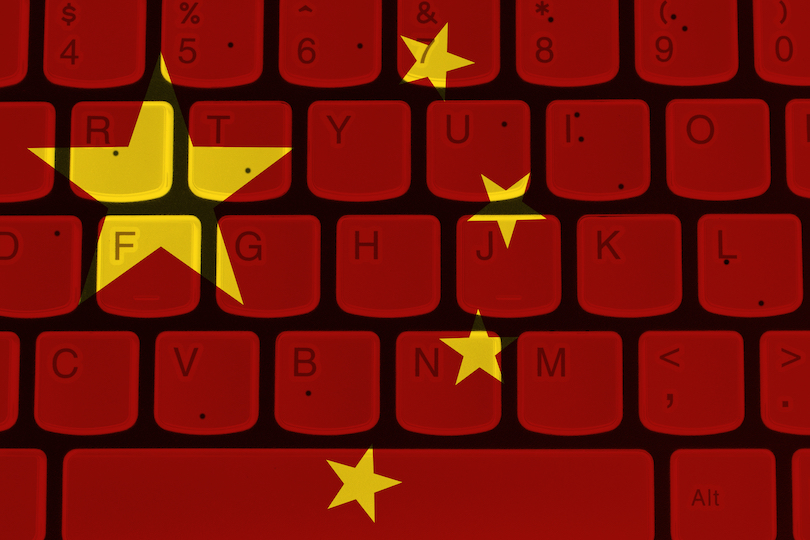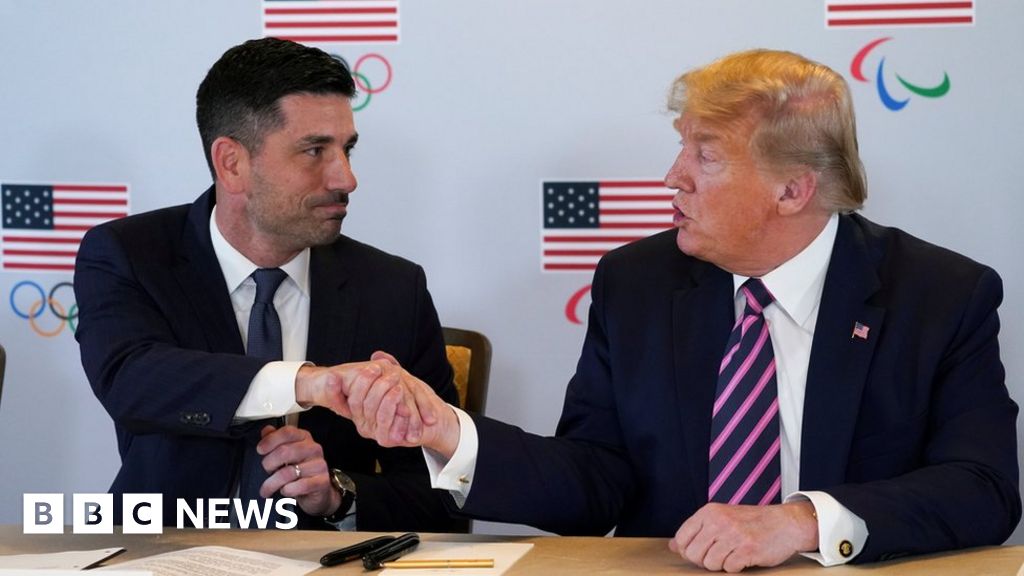In April, on the event of commemoration of the 150th anniversary of Lenin’s beginning, the main Chinese language ‘New Left’ scholar Wang Hui revealed an essay to reward what he sees as Lenin’s nice ‘revolutionary character’ (a helpful translation might be discovered within the website Reading the China Dream, with introductions situating the contexts). Rong Jian, an impartial liberal scholar, produced two items criticizing Wang, claiming that Wang’s essay signifies Wang’s ‘Heidegger Moment’ to rationalize an authoritarian regime. Rong’s items have been quickly censored, regardless of their fairly summary and scholarly tones. All of the whereas Wang’s essay stands within the Chinese language web behind the Great Firewall. This can be a microcosm of how the Chinese language ‘New Left’ was statist apologists for the Chinese language Communist Get together.
It’s not true that Wang’s essay is uncritical of the present Chinese language Communist regime. Amidst its reward of the so-called ‘Individuals’s Struggle’ technique adopted by the Beijing authorities in combating COVID-19, Wang did underscore the ‘the dangerous habits of bureaucratism and formalism’ that at occasions appeared within the ‘state system’, which led to many errors within the early phrase of the combat in opposition to the pandemic. But, citing broadly from Machiavelli and Gramsci to Lu Xun and Mao Zedong, he argued {that a} revolutionary chief like Lenin is the treatment: Wang praised Lenin’s character to ‘oppose his personal celebration and its guiding line… solely to attain hegemony after protracted and generally bitter theoretical and political struggles’.
In accordance with Wang, the really certified revolutionary chief impersonates ‘the folks’, making folks’s voice heard throughout the celebration by theoretical debates and political struggles, and thus units the celebration’s path straight and ‘remakes’ the celebration. The revolutionary chief’s endurance to stay to their very own judgement within the face of setbacks, and even disastrous failures, is the place their greatness lies. Wang argued that they’ll have such extraordinary endurance as a result of they know they’re right all alongside: they’ve the extraordinary skill to find the weakest hyperlink of Imperialism (‘the best stage of capitalism’, as Lenin had it) by its revolutionary company, even when they’re in a severely deprived political place. These kind the core of what he termed ‘the philosophy of victory’ within the really revolutionary chief. Wang concluded that rekindling such a ‘revolutionary character’ must be the duty of the Left as we speak, and it’s the actual modern relevance of Lenin.
Wang was cautious to qualify that the chief needn’t be a single particular person, and that ‘democracy’, that’s, the allowance of ‘public and frank debates’, throughout the celebration, is a vital situation for a revolutionary chief to emerge. But, as considered one of Rong’s pieces rightly famous, what Wang didn’t point out is how bloody and merciless these ‘theoretical and political struggles’ have been throughout the events within the historical past of 20th century worldwide communist actions. To not point out the large human prices paid for the revolutionary leaders’ endurance and ‘philosophy of victory’ in, for instance, the Great Leap Forward. And, in any case, in as we speak’s China, who can actually have the company to be a revolutionary chief in Wang’s sense? Wang didn’t appear to be sad with the shortage of freedom of political affiliation in China. Implied, then, after all, are the leaders of the present Chinese language Communist Get together, if not the ultimate leader General Secretary Xi himself. Rong thus accused Wang as promoting his idea for authoritarian use, identical to Heidegger did in Nazi Germany within the Nineteen Thirties.
What Rong didn’t cowl in his items was the broader mental context of Wang’s theorizing. This context is certainly the important thing to understanding the place of the Chinese language ‘New Left’ within the self-understanding of the political leaders in Beijing. The important thing concepts at work listed below are the speculation of imperialism and the creativeness of Imperial China. The Chinese language ‘New Left’, with Wang being the main mild, invoke the latter to legitimize as we speak’s China as a candidate to problem the imperialism of the U.S.. It’s the place the party-state intellectuals decide up the road.
Early in 2007, within the article ‘The Politics of Imagining Asia’ (an ungated English translation might be discovered here), Wang argued that the imperial system of historical China is unfairly derogated as ‘Oriental despotism’ from the attitude of the nation-state system because the political construction of capitalism. The Imperial Tributary System was praised by Wang as a particular type of trade-cum-political-culture of historical Asia, which allegedly revered cultural range but maintained some unity in political order. Wang thought-about such a system as an essential historic legacy for Asia, versus the ‘world empire with the U.S. as its middle and world organizations such because the World Financial institution, the WTO, and the IMF as its mechanisms. The concept of an ‘empire’ employed by Wang right here may be very a lot in keeping with the political considered the left on imperialism, old (Lenin) and new.
The identical framework was later used to interpret the cultural dimension of the Belt and Street Initiative, which Wang praised as ‘remaking the civilization’, in a lecture (but to be translated in English) he gave in Xinjiang in 2015. In his 2007 article, Wang additionally invoked the notion of ‘guerrilla or “partisan” of “irregular warfare”’ (citing, alarmingly, Carl Schmitt), or the ‘Individuals’s Struggle’, as utilized by Mao as a particular technique to comply with Lenin’s anti-imperialistic footsteps, thus pointed to a method for Asian peoples to interrupt the chain of the Western empire. Certainly, his ‘Revolutionary Persona’ essay practically repeated verbatim what he argued about Lenin and Mao in a single part of the 2007 article. Wang is constant all through his mental profession.
The statist orientation of Wang’s theorizing can solely turn out to be apparent if we word that precisely this ‘the Imperial (China) vs. the Empire (of the U.S.)’ framework was used by Jiang Shigong, a authorized scholar with Beijing authorities background, to theorize China contesting the U.S.-led world order (English translation). The empire that the U.S. leads is in decline, Jiang argued, and that the heritage of Imperial China, which as one of many ‘regional civilizational empires’ that conquered others however ‘sought civilizational improvement, creating “unity” and “peace” throughout the area’, can and must be retrieved. He concluded that ‘[t]he civilization that is ready to present real options to the three nice issues going through world empire 1.0 may even present the blueprint for world empire 2.0.’
Once more, for Jiang, this framework shouldn’t be new. In his 2010 book on Hong Kong, he already interpreted the thought of ‘One Nation, Two Programs’ as a contemporary incarnation of the traditional Imperial Chinese language Tributary System. Jiang wrote the e-book when he was a researcher within the Liaison Workplace of the Central Individuals’s Authorities in Hong Kong from 2003 to 2007. He was additionally allegedly the drafter of Beijing’s White Paper on One Country, Two Systems in 2014, the grand plan for tighter political management on Hong Kong. Its authoritarian method triggered the Umbrella Movement within the metropolis. Just lately, Jiang additionally wrote an article (English Translation) celebrating Xi Jinping’s rule as contributing the gem of the Chinese language historical philosophy to trendy civilization.
Jiang and Wang usually are not alone. Gan Yang, one other main ‘New Left’ mental, additionally argued in an earlier celebrated lecture (English translation) that Mao’s and Deng Xiaoping’s ruling philosophies have been actually continuations of historical Imperial Chinese language ideas. Such an allegation may also be present in Jiang’s e-book on Hong Kong. Gan was well-known not too long ago in China for his effort, as an educator, to rebuild elite education, championing the study of Chinese classics. Now we are able to see how Wang Hui’s theorizing is certainly embedded in a broader mental mission. It’s to see as we speak’s China, led by the Get together, by means of the lens of historical Imperial Chinese language political ideas, in order that its standing as a rival to the U.S. imperialism might be legitimized by a imaginative and prescient of China-led world order.
To retrieve historical mental assets for modern pondering may very well be an admirable mission. A number of the analyses made by the Chinese language ‘New Left’ of the disaster of the U.S.-led world order, alongside the strains of the political theories of the left, certainly make sense. But, it’s alarming that the company to alter to be known as for is the party-state, which Wang himself admitted as a lot within the English preface of his e-book The End of the Revolution (see particularly pages xxx to xxxii). We must be particularly alarmed when that is accompanied by the expansionist overtones within the ‘New Left’ intellectuals’ retrieval of historical Chinese language ideas. The Tributary System, in any case, was premised on the political subordination of other peoples to the Imperial China.
Of their theorizing, the Chinese language ‘New Left’ intellectuals conveniently downplayed or ignored many individuals’s lack of private freedom and political liberties, previous and current. Intentional or not, these might serve to whitewash each previous and current state oppression, if to not outrightly justify authoritarianism. To this extent, the Chinese language ‘New Left’ ideas are turned to mental weapons of state apologists. Wang’s essay can stand uncensored throughout the Nice Firewall for a cause. For all its makes use of of educational languages of the unconventional left, it helps in the long run to legitimize the party-state, alongside a line of political thought that the celebration leaders are comfy with.











